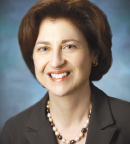As reported in the Journal of Clinical Oncology by Suzanne L. Topalian, MD, and colleagues, neoadjuvant treatment with nivolumab was found to produce pathologic complete response in approximately half of patients with resectable Merkel cell carcinoma enrolled in the phase I/II CheckMate 358 trial. Pathologic complete response was associated with improved recurrence-free survival.

Suzanne L. Topalian, MD
CheckMate 358 is a multicohort trial investigating nivolumab alone or as part of a combination regimen in virus-associated solid tumors. In the Merkel cell carcinoma cohort, 39 patients with resectable stage IIA to IV disease received nivolumab at 240 mg on days 1 and 15, with surgery planned on day 29. Tumor regression was assessed radiographically and microscopically.
Treatment Outcomes
Among the 39 patients, 3 (7.7%) did not undergo surgery, 1 due to tumor progression and 2 due to adverse events; adverse events consisted of grade 2 nausea considered unrelated to treatment and treatment-related grade 3 rash.
Among the 36 patients who underwent surgery, 17 achieved pathologic complete response (47.2%). Among 33 evaluable for radiographic response, response defined as tumor reduction of ≥ 30% was observed in 18 (54.5%). Responses were observed irrespective of tumor Merkel cell polyomavirus-positive or -negative status, programmed cell death ligand 1 expression, or tumor mutational burden.
KEY POINTS
- Nivolumab was associated with a pathologic complete response rate of 47%.
- Recurrence-free survival was improved in patients with vs without pathologic complete response.
At a median follow-up of 20.3 months among the 36 patients who underwent surgery, the median recurrence-free survival was not reached, with 12- and 24-month rates of 77.5% and 68.5%. For patients with vs without pathologic complete response, 12- and 24-month rates were 100% vs 59.6% and 88.9% vs 52.2% (hazard ratio [HR] = 0.12, 95% confidence interval [CI] = 0.01–0.93). Among the 33 evaluable patients with vs without radiographic response, 12- and 24-month rates were 100% vs 56.5% and 90.9% vs 48.5% (HR = 0.11, 95% CI = 0.01–0.87).
Adverse Events
Any-grade treatment-related adverse events occurred in 18 patients (46.2%), with grade 3 or 4 adverse events observed in 3 (7.7%). Immune-mediated adverse events occurred in six patients (15.4%; skin reactions in 10.3%) and were grade 3 or 4 in two patients (one with skin toxicity and one with gastrointestinal toxicity). No treatment-related deaths occurred.
The investigators concluded, “Nivolumab administered approximately 4 weeks before surgery in [patients with] Merkel cell carcinoma was generally tolerable and induced pathologic complete responses and radiographic tumor regressions in approximately one-half of treated patients. These early markers of response significantly predicted improved recurrence-free survival. Additional investigation of these promising findings is warranted.”
Dr. Topalian, of Johns Hopkins Bloomberg~Kimmel Institute for Cancer Immunotherapy, Sidney Kimmel Comprehensive Cancer Center, is the corresponding author for the Journal of Clinical Oncology article.
Disclosure: The study was supported by Bristol Myers Squibb, ONO Pharmaceutical Company Limited, The Mark Foundation for Cancer Research, and National Cancer Institute. For full disclosures of the study authors, visit ascopubs.org.

